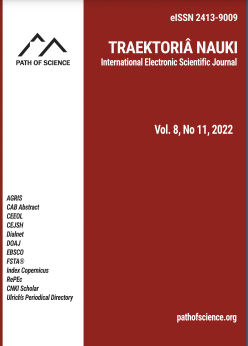Determination of Heavy Metals and Ascorbic Acids in Some Soft Drinks Sold Within Bauchi Metropolis, Nigeria
Determination of Heavy Metals and Ascorbic Acids in Some Soft Drinks Sold Within Bauchi Metropolis, Nigeria
Author(s): Aisha Saleh, Sulaiman U. Abubakar, Solomon Daniel, Zakiyya Rilwan Musa, Warji Muhammad Ibrahim, Zubairu Ibrahim Hamidu, Buhari Labaran, Abbas Muhammad SaniSubject(s): Health and medicine and law, Demography and human biology
Published by: Altezoro, s. r. o. & Dialog
Keywords: WHO; Soft Drinks; Ascorbic Acid; Heavy Metals;
Summary/Abstract: Soft drinks are consumed in Nigeria due to their easy availability, distinct taste and ability to quench thirst. However, the high demand can reduce production quality due to possible heavy metal contamination, leading to human poisoning and death. This study evaluated some components of 100 soft drinks in Nigeria and investigated the presence of heavy metal contaminants and ascorbic acid concentrations. The presence of Arsenic, Cadmium, Lead, Manganese, Nickel and Chromium in soft drinks was determined using an atomic absorption spectrophotometer; the Ascorbic acid was determined using the titrimetric method. The analysis of the soft drink revealed that Arsenic was present in all the samples in a concentration ranging from 0.017 to 0.33 mg/l; Cadmium - 0.027 to 0.160 mg/l; Lead - 0.046 to 0.109 mg/l; Manganese - 0.036 to 0.116 mg/l; Nickel - 0.002 to 0.110 mg/l; Chromium - 0.057 to 0.122 mg/l. The attention of ascorbic acid ranged between 4.03 to 7.2 mg/100 ml. Compared to WHO standards, the levels of the heavy metal contaminants were above the tolerated limits for good quality drinking water in most samples. Moreover, the ascorbic acid values in this analysis were lower than those the manufacturers reported. Therefore, the National Health Surveillance agency should monitor ascorbic acid. These results suggest that soft drinks in Nigeria may be contaminated with heavy metals, which constitute a significant public health problem. Quality control is recommended during production, especially during sterilization and purification steps.
Journal: Traektoriâ Nauki
- Issue Year: 8/2022
- Issue No: 11
- Page Range: 5001-5007
- Page Count: 7
- Language: English

